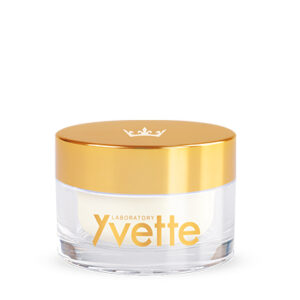The term mature skin is generally a way of saying that your skin is showing signs of aging. As you age, your skin loses elasticity and becomes thinner. Age-related skin changes are normal (and beautiful), but you can nevertheless look for ways to slow down these processes and keep your skin looking youthful.
There are many things you can do before you reach skin maturity. We discuss everything you need to know about mature skin, what it is, what skin care you should use and how to refresh it with makeup.
What is mature skin?
Technically, your skin may not be "mature," but the passage of time is definitely reflected in its appearance. If you see fine lines, wrinkles and sun damage, you may have mature skin.
There is no set age at which your skin suddenly reaches this stage. It all depends on genetics, lifestyle, skin care, hormones and diet. Typically, people over the age of 35 begin to show signs of mature skin. As you age, the metabolism of your cells slows down and collagen production declines. Collagen prevents skin sagging and provides a plump, youthful appearance.
You can, completely unintentionally, do things that accelerate the rate at which your skin "matures," such as drinking alcohol excessively, eating a sugar-rich diet and smoking cigarettes. All of these things are not good for your body, and therefore not good for your skin, and cigarettes and alcohol are among the worst. They chronically deprive your skin of oxygen and nutrients.
Nevertheless, no matter what habits you have, good or bad, everyone ends up with mature skin because there is little you can do to avoid aging. Although prevention is the best way to keep your skin looking younger longer.
Mature skin how to check if you have it?
One of the most visible signs, is the loss of firmness. Young skin is elastic thanks to elastin and collagen. However, as you age, you produce less and less of them. The not-so-fun part of aging is that the dead skin cells don't disappear as quickly, causing you to produce no new, healthy cells, and your skin begins to look rougher and duller.
Another characteristic is visible sun damage. When you're younger, you can get a sunburn and tan, and your skin may still look perfect. However, your skin will continue to be damaged, and this will reveal itself as you age. A quick way to look "old" is to keep exposing your skin to the sun. Always try to use sunscreen when you go outside. Your skin will repay you for it in the future!
Dry skin is another characteristic of mature skin. Your skin does not produce as much natural sebum as you age and becomes prone to dryness. This decrease in sebum will happen even if you have oily skin now. Without proper hydration, you may end up with more or less fine lines and wrinkles, and your skin may look dull.
Mature skin care
Proper skin care is crucial when you are trying to slow down the aging process. If you have the right skin care routine, you can prevent signs of premature aging.
The first thing to remember is that moisturized skin is happy skin. Moisturize your entire face, under-eye area and lips. The eye area is one of the first places where fine lines appear. A good eye cream can keep the area supple and tight. Another very important product in anti-aging care, regardless of skin type, is sunscreen, as overexposure to the sun accelerates skin aging.
Specifically for the care of mature skin, we have created the Autobiography Line series of anti-aging cosmetics that increase skin firmness and reduce wrinkles.
This entry is based on/translated from: Mature Skin: Is It Really a Skin Type Photo by Ravi Patel on Unsplash



